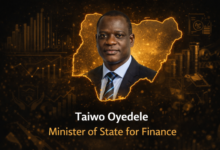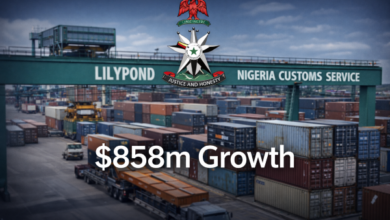Oil and gas workers raise alarm over Nigeria’s N77trn debt
 The Petroleum and Natural Gas Senior Staff Association of Nigeria (PENGASSAN) on Thursday in Abuja raised the alarm over Nigeria’s N77 trillion public debt.
The Petroleum and Natural Gas Senior Staff Association of Nigeria (PENGASSAN) on Thursday in Abuja raised the alarm over Nigeria’s N77 trillion public debt.
Addressing the 7th triennial national delegates’ conference of the association, its president, Mr Festus Osifo, expressed concern that the debt profile as at the first quarter of 2023 was mind-blowing.
He noted that poor implementation of fiscal and monetary policies and policy inconsistencies worked against the economic growth and development of the country.
“According to the Debt Management Office, Nigeria’s total public debt profile, representing domestic and external debt stocks of the 36 state governments and the FCT, currently stand at N77 trillion.
“This is quite alarming, mostly when you compare the cost of servicing this debt to the revenue generated by government per annum.
“In the 2023 budget for instance, we will be using virtually all the monies generated as a country in servicing our debt.
“This is a calamity of the highest proportion unless we do all we can to increase the revenue base.
“While we do not condemn borrowing, we insist that borrowed funds should not be used for consumption, but channelled into productive ventures and infrastructural development,’’ he said.
Osifo also called on the incoming government to seek other approaches to revenue generation.
He expressed concerns about the current state of the economy, saying what was expected was a steady growth in GDP; increased access to employment and diversification of the economy.
The PENGASSAN president noted that Nigeria’s economy was confronted with challenges of structural imbalance, corruption, weak human capital development, inequality, security challenges and excessive dependence on oil revenue.
He stressed that these were some of the key challenges that the incoming government should tackle with sound and coordinated strategy in consultation with relevant stakeholders and industrial experts.
“We have talked a lot about diversification of the economy and this is the time for implementation as a matter of urgency.
“The truth is that revenue from the oil and gas sector can no longer sustain us as a nation and this is the most auspicious time to walk our talk.
“We commend the on-going efforts of government in the agriculture sector and expect the tempo to be sustained in the entire value chain.
“The efforts should be replicated in areas like solid minerals, tourism, and technology, among others.
“Efforts must be made by the incoming administration to address the issues of multiple exchange rates as the arbitrage created is negatively affecting the economy.
“We must put a stop to the use of `Ways and Means’ in enhancing government’s activities as this fuels inflation because it is not backed by value creation,’’ he stressed.
Osifo also commended efforts being made in the completion of various gas-related projects.
He listed the projects as the 614km-long pipeline from Ajaokuta to Kano, the Escravos Gas to Liquids project in Lagos and the gas transmission pipeline from Delta to Edo.
He added that when completed, the projects would provide employment and also help in gas gathering and evacuation for domestic use.
The theme of the conference is: “Equity and social justice advocacy for equal opportunities for all workers’’.










